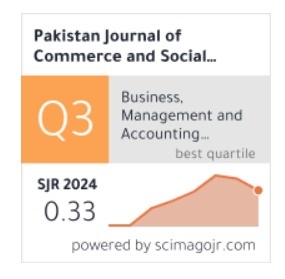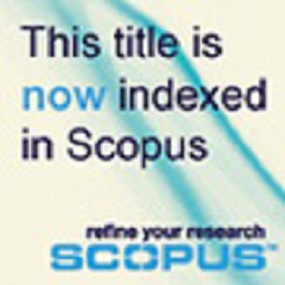The Mediating Role of Reflective Moral Attentiveness between Organizational Identification, Perceived Insider Status and Unethical Pro-Organizational Behaviors
Keywords:
perceived insider status, organizational identification, unethical pro organizational behaviors, reflective moral attentiveness, social exchange theory, social cognitive theory.Abstract
Unethical pro-organizational behaviors (UPB) are generally defined as behaviors that are unethical but at the same time intended to help the organizations warrant renewed attention to address its long-term implications. Drawing from social exchange theory (SET), the goals of this research are to investigate effects of perceived insider status (PIS) and organizational identification (OID) on UPB through reflective moral attentiveness (RMA). Data was collected from 300 managerial employees from services sector of Punjab, Pakistan and subjected to hierarchical regression analysis and structural equation modeling with the help of SPSS 23. The results confirm significant positive effects of perceived insider status and organizational identification on UPB and mediation effect of reflective moral attentiveness. The study is first to incorporate RMA as mediator in associations of PIS and OID with UPB. The managers should make their employees conscious of short term benefits and long-term harmful consequences of UPB. They should expand the intellectual abilities of their employees enabling them to think before performing the UPB. Additionally the organizations can place morally attentive employees at key positions to promote the culture of morality. The organizational executives can be role models for observing the moral principles and should recruit the morally attentive managers / employees and may direct frequent analytical and integrity programs to endure an environment of morality. Turning the managers and employees sensitive to moral matters, the organizations can eliminate UPB.





